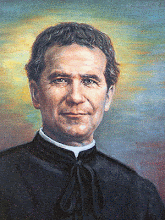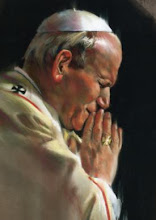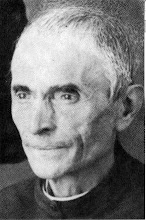The following comes from Msgr. Charles Pope:
In the Office of Readings today we read from 2 Corinthians 4 where St. Paul well describes the work of the Church in the Public square: Setting forth the truth plainly, we commend ourselves to every man’s conscience in the sight of God (2 Cor 4:2). Not a bad description of our posture and practice toward the secular world.
Yet, that is not often the impression many take from our posture. In what I would called a misplaced fear, many think of the Church as trying impose her power and views on others. In much of the heated public debate on the HHS mandate (that the Catholic Church pay for contraceptives, abortifacients, and sterilization) and over gay “marriage,” there is a strain to the conversation, that somehow, the Catholic Church is trying to “force” people to follow what she teaches.
To think that we have such power is fanciful, but the charge comes up a lot and in different forms. Consider the following comments I gleaned from various sources, mainly from the comboxes of several secular papers. These comments are not made up by me. I cut and pasted them into a reference file over the last two years, they are actual quotes of readers. All of them see us as trying to use power to force others to do what we want:
- Inasmuch as we can neither prove nor disprove the existence of God, everyone should be free to follow their own path as individuals. You are. The Church doesn’t have the power to force you to do anything. But you are going further than “following your own path.” You are asking for legal recognition of something that has never been recognized before (i.e. Same-sex unions). Expect a little push back. Further, the Catholic Church does not only appeal to God and the Bible but also to Natural Law, because we recognize that not everyone sees the Scriptures with the kind of reverence we do.
- When it comes to owning a business that accepts public funds and which will employ believers of every stripe as well as non-believers, the owners have no right dictating the choice of others -Actually it is the Government that is dictating choice. In the HHS mandate, only the government has the power here to compel and punish non-compliance, and they are saying that we must give contraceptivesfree to anyone who asks for them. The “mandate” says that Catholics, and anyone who objects to sterilization, to abortifacients and contraceptives, (for it is not only Catholics), must pay for them whether they like it or not. As for Gay “marriage,” it is once again the Government that is requiring everyone to recognize what has never been recognized before, that same-sex couples are “married.” And, by gosh, if we don’t recognize them and treat them as married then we will be decertified from adoption services and have to stop providing marital health benefits for our married employees (as happened with Catholic Charities). So there IS a lot of forcing going on here, but it isn’t the Church. We don’t have that power, the State does. And frankly that should make everyone sober, even those who don’t agree with us on these specific issues. EVERYONE ought to be mighty concerned when the State seeks to compel people to act against their conscience.
- Just one more example why one should never vote for a Roman Catholic politician who would more likely march in lockstep to the dictates of the Church than follow constitution. Whew! Dream on, we have the opposite problem. Very FEW Catholic politicians live their faith when it comes to political agendas. And if they do, they, like anyone else, they have to face the voters every few years. Further, why is it wrong for politicians to follow, say, environmental agendas, or homosexual agendas, or social justice agendas, but it is WRONG for them to follow religiously inspired agendas?Since when do people of faith have no voice or seat at the table in the world of politics? Are we not citizens who have the right to petition the government for redress etc?
- This is about the Catholic church (sic) demanding that people who do not have any allegiance to that church or its dogma live by its rules. We don’t have this power. It is the State (and you?) who are instituting that we pay for what we consider wrong. Why should I have to pay for your contraceptives? Why should you simply demand to get them free?
- Today, they are gunning for the gays. Next will be your birth control. We don’t have this power. What we are asking is that we not be compelled to pay for things we consider wrong and sinful.
- In pushing your definition of marriage on to all other people and churches, you are in fact trying to ensure that Catholic law remains state law. We don’t have this power. As citizens, and for principled reasons rooted in Scripture and Natural Law, we argue that the law that Has ALWAYS been the law in this land, remain unchanged. We have a right, as citizens, to be part of the political process. One side is going to win, right now it looks like the pro-gay -pseudo marriage folks. How would you feel if I said, “You are pushing your definition of marriage and trying to make it State law?” Why don’t we just admit that we both have a right to be in the public square and advocate for what we think is right? I think you’re wrong headed and confused about marriage and your type loves to call me intolerant and bigoted. I’ll see you at the ballot box. Oh! but wait a minute! Here in DC your advocates on the DC Council would not allow a referendum, you try NOT to allow votes on such matters, but use the legal system to impose your views. And, gee, when we do win at the ballot box as we have in several states, your side runs to a judge and tries to overturn the will of the voters. Hmm….who is throwing power around here? Who’s pushing whose definition on whom? Hmm…?
- the church will be better off the more that it gives up its hold on political power. What power? If we’re so powerful, why is the moral meltdown so advanced? Again, are you simply striving to say we should have no voice in the political process? We have a right as citizens to try and influence outcomes, just like you. Frankly we haven’t been very successful lately. I’d love to find out where all this political power we theoretically have is hidden.
OK, well you get the point. A LOT of people think we have a lot more power than we do. Frankly it’s laughable to think think the Catholic Church has all this power. We can’t even unify our own believers. I have written before (with love) that unifying Catholics is like herding cats! I would to God that we could really unify around anything. Then we might be a political force to be reckoned with. And as citizens we would have every right to be such a force. But as it is, we are (sadly) a rather divided lot, even on abortion. I can assure you , most Catholic politicians do NOT have a hotline to the Vatican or take even a scintilla of advice from the Pope or Bishops. And even if they accidentally agree with the Pope or the bishops, for most of them, it is because the politics make sense, not that the faith has “compelled” them. No, don’t worry too much about the “power” of the Church.
That said, I have already commented above (in the red remarks) that Catholics, as citizens of the Untied States of America have the same rights as any other citizen to petition the government, to seek to enact laws that reflect our values and concerns. But we have no more or less power or voice than any other citizen of this Land. We, like others, often band together with coalitions. But again, if this is somehow wrong, then why is it not wrong for feminists, or environmentalists, or unions, or advocates of any number of hundred of other causes to do the same? We are Americans with rights. And people of faith have just as much right to be in the public square and the public conversation as any one else.
Some of the commenters in Comboxes, I survey like to recite grievances from the Middle Agesabout Church power then etc. Why not leave the 14th Century politics in the 14th Century, and let’s stay in the 21st Century. There was a LOT of bad stuff in the old days. It wasn’t just the Church, governments too were different then. Modern democratic republics were unknown in those days. Today the political landscape is different. And if the Church ever did have all the power (and some of the claims are exaggerated and the Inquisition is often cartoonishly portrayed) that is not the case today. For our purposes we are in the 21st Century West.
Finally, I return to the quote from St. Paul in today’s office that rather well distills what we, as a Church, and as believers, seek to do in the public square of America. More than acquire power (which is not easy in a wide and pluralistic culture), we seek to commend ourselves, and our message to everyone’s conscience. St. Paul says in context,
Rather, renouncing secret and shameful ways; we do not use deception, nor do we distort the Word of God. On the contrary, by setting forth the truth plainly, we commend ourselves to every man’s conscience in the sight of God (2 Cor 4:2)
Yes, frankly we do have vigorous disagreement with secret (and not so secret), and shameful practices. And we will not, in order to be popular or conformed to these times, distort or misrepresent the Word of God. Abortion is wrong. Fornication, adultery, and homosexual acts are wrong. Divorce, and chosen single parenthood, and so called gay “marriage” are wrong. Contraception, sterilization, embryonic stem cell research, euthanasia, wrong, wrong wrong.
But I cannot force you to obey me. Rather I commend myself to your conscience. And even if Scripture will not be acceptable to you, I will have recourse to Natural Law. I, indeed the whole Church, will continue to commend ourselves to your conscience. And even though the gospel is currently “out of season” (cf2 Tim 4:2) and you laugh at me and call me names like intolerant, bigoted etc., I will continue to commend myself to your conscience.
As long as I live I will speak the truth in love. And however you choose to understand me I will continue to speak. You may wish to call me hateful. I am not. I invite you to conscientiously consider what I say. I cannot command you, so do not fear me. But I do commend myself to your conscience.
I will meet you in the public square, for that is my right as much as yours. But in the end, mandates and forced adherence are not in my power. I commend myself to your conscience, I do not, I cannot, command you.
Those of this world may choose on their own to be pleased or displeased by what we say. As for me, my prayer is and must remain: May the words of my mouth and the meditations of my heart be pleasing to you my God(Psalm 19:14).


















No comments:
Post a Comment